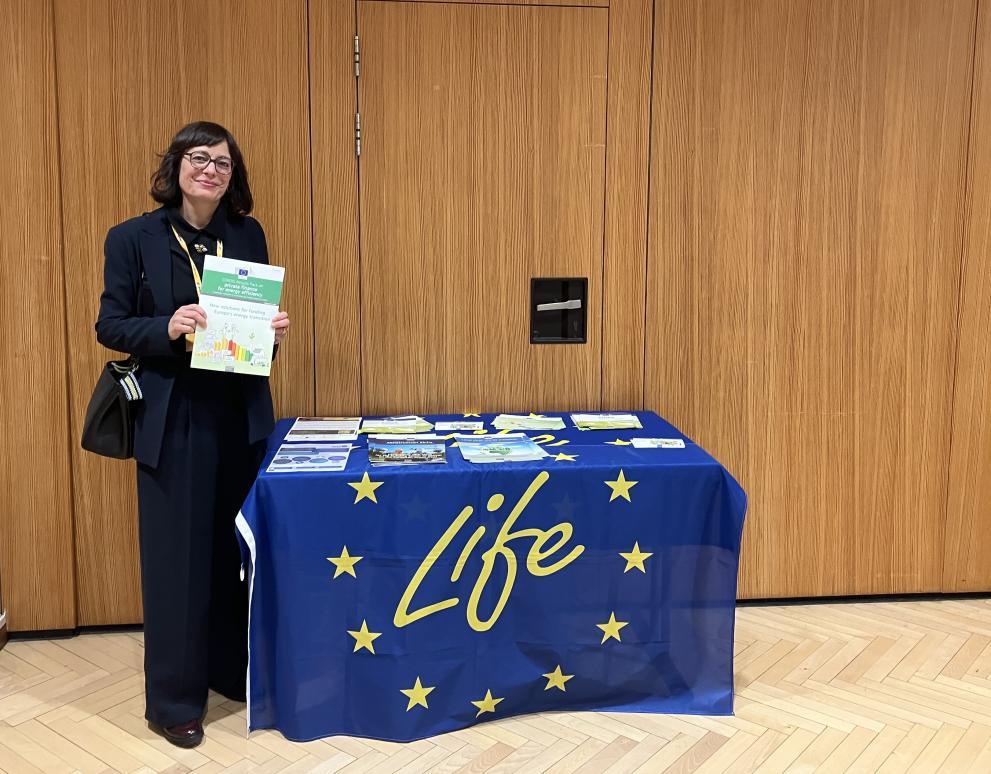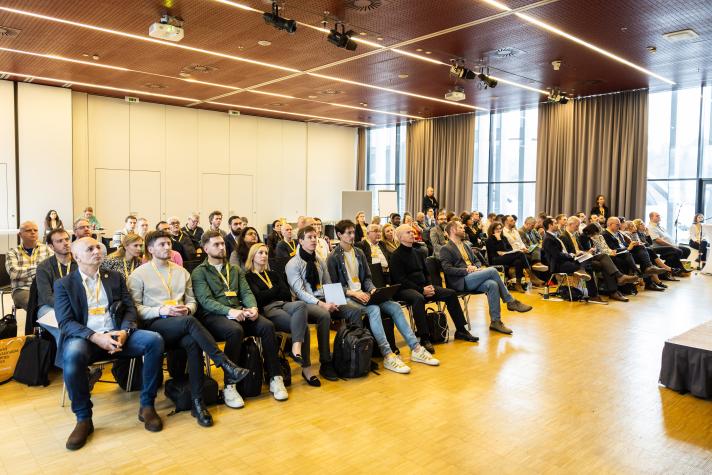
Retrofitting, energy communities, renewables, and energy efficiency were on the agenda at the four-day World Sustainable Energy Days 2024 (WSED) conference. Held from 5 to 8 March in Wels, Austria, WSED brought together over 650 specialists, including LIFE project representatives, from over 60 countries. A trade show on site provided insights into the latest innovations by a wide range of Austrian and international companies.
ManagEnergy Initiative hosted a workshop with Horizon 2020 PROSPECT+ project. The session covered various facets of sustainability, including retrofitting, energy communities, renewable energies, small medium enterprises, and energy efficiency. Anette Jahn, Head of Sector at LIFE Climate and Energy Unit at CINEA, presented how LIFE Clean Energy Transition sub-programme supports transformative projects working towards an energy efficient, renewable energy based and climate-neutral Europe. These highlighted the pivotal role of cities, regions, and energy agencies in driving tangible progress towards EU energy policies. Over 80 delegates attended from local and regional energy agencies, public authorities, academia, NGOs, and EU institutions.
Between sessions a number of projects and innovations were being displayed in a poster area by 60 project teams and young researchers, including LIFE projects DEESME 2050 and EENOVA.
LIFE DEESME 2050 focuses on improving the energy efficiency of the global furniture industry. Europe is home to the world’s second largest furniture market, with 130 000 companies and over 1 million employees. LIFE DEESME 2050 supports a significant number of companies in implementing energy efficient measures, training employees in sustainable behaviours, and preparing the financing, standardisation, and replication of actions across the furniture supply chain.
In a similar concept, LIFE EENOVA guides food processing businesses towards tailored energy-related improvements to enhance energy efficiency, promote energy-smart solutions, and increase renewable energy use. By training partners in the food sector and creating regional hubs, the project brings together companies operating within the same value chain to identify common steps to raise awareness, encourage collaboration, and implement energy-efficient practices. It anticipates primary energy savings of roughly 1.1 GWh a year and renewable energy generation of 1.1 GWh a year by project completion in 2025. This equates to the energy consumed by over 100 million LED light bulbs.
LIFE EENOVA’s showcase at WSED generated attention from many delegates interested in the food sector. Commenting on the conference, “Our focus is on the value-chain, but we learned a lot from other presenters and stakeholders who are working to make efficient communities, and industrial hubs”, said Anna Comacchio, communications specialist at Energy Efficiency in Industrial Processes, on behalf of EENOVA. “It was inspiring to see strong EU leadership on innovation and market orientation that will support industrial decarbonisation, upskilling and job creation, as well as unlocking private investments.”
In conclusion, reflecting on the conference, Anette Jahn further emphasized the significance of European businesses in the energy transition, stating, “Our European businesses are key. They are very fast and agile enterprises, but they do need support in order to be able to run their energy production lines, and their energy services, within the heart of the energy transition, and that is where energy savings need to come into play.” She added, “The LIFE Clean Energy Transition programme is really the key programme to underpin European policy objectives, helping European projects which work very actively to transform their markets.”
Source: CINEA
Details
- Reference
- Online Seminars
- Publication date
- 26 March 2024
- Author
- European Climate, Infrastructure and Environment Executive Agency

